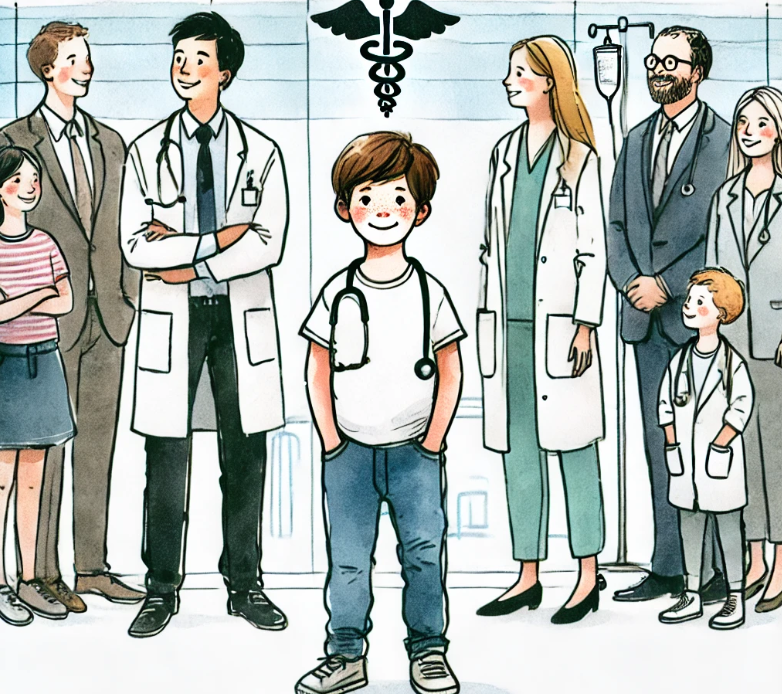
22q11.2 Deletion Syndrome: A Common and Complex Condition
Have you ever heard of 22q11.2 deletion syndrome (22q11.2DS)? This condition is the most common chromosomal microdeletion disorder, affecting approximately 1 in every 1,000 fetuses. Despite its prevalence, it remains underrecognized due to its wide range of symptoms and complex nature. Let’s dive into what 22q11.2DS is, its significance, and why public health practitioners and the general public should be aware of it.
What is 22q11.2 Deletion Syndrome?
22q11.2DS is a genetic disorder caused by a small missing piece of chromosome 22. This deletion can lead to various health issues, affecting multiple systems in the body. The syndrome was first described in the 1960s in children with DiGeorge syndrome, which includes a trio of symptoms: immunodeficiency, hypoparathyroidism, and congenital heart disease. Over the years, it has become clear that 22q11.2DS presents in many ways, making it a complex condition to diagnose and manage.

The Wide Range of Symptoms
One of the challenges of 22q11.2DS is its diverse symptoms, which can include:
- Congenital Heart Defects: About 75% of individuals with 22q11.2DS have heart defects, often detected in infancy.
- Immune System Issues: Many children with the syndrome have problems with their thymus, leading to immunodeficiency and frequent infections.
- Endocrine Abnormalities: Hypoparathyroidism is common, causing low calcium levels, which can lead to seizures.
- Developmental Delays and Behavioral Issues: These can range from mild to severe, affecting learning, speech, and social interactions.
- Psychiatric Conditions: There is a higher risk of developing psychiatric disorders, such as schizophrenia, later in life.
This variety in symptoms often results in delayed diagnosis, as no two cases are exactly alike. Early diagnosis, preferably prenatally or neonatally, is crucial to improve outcomes.
The Importance of Early Diagnosis and Multidisciplinary Care
The management of 22q11.2DS requires a team approach involving various healthcare professionals, including pediatricians, cardiologists, endocrinologists, and psychiatrists. Early diagnosis allows for timely interventions that can significantly improve the quality of life for those affected. For example, addressing heart defects early can prevent complications and improve survival rates.
A Model for Understanding Other Conditions
Interestingly, 22q11.2DS has become a model for studying other congenital anomalies, medical conditions, and psychiatric disorders. By understanding this syndrome, researchers can gain insights into similar conditions, which can lead to better treatments and management strategies for a broader range of diseases.
Why Should Public Health Practitioners Care?
Public health practitioners play a vital role in raising awareness about 22q11.2DS. Early screening and diagnosis can lead to better health outcomes and reduce healthcare costs. Furthermore, understanding this syndrome can help public health officials design targeted interventions and support systems for affected individuals and their families.
The Need for Universal Screening
One key takeaway from studying 22q11.2DS is the importance of universal screening. Early detection through prenatal testing can prepare parents and healthcare providers for the necessary interventions right from birth. This proactive approach can prevent severe complications and improve long-term health outcomes.
What are your experiences?
- Have you or someone you know been affected by a genetic disorder? How did early diagnosis impact the management and outcome of the condition?
- What do you think are the biggest challenges in raising awareness about genetic disorders like 22q11.2DS, and how can we overcome them?
Conclusion
22q11.2 deletion syndrome is a complex but relatively common genetic disorder that requires more awareness and understanding. By recognizing the symptoms and advocating for early screening and a multidisciplinary approach to care, we can improve the lives of those affected by this condition. Public health practitioners have a critical role in promoting these measures and supporting affected families.



